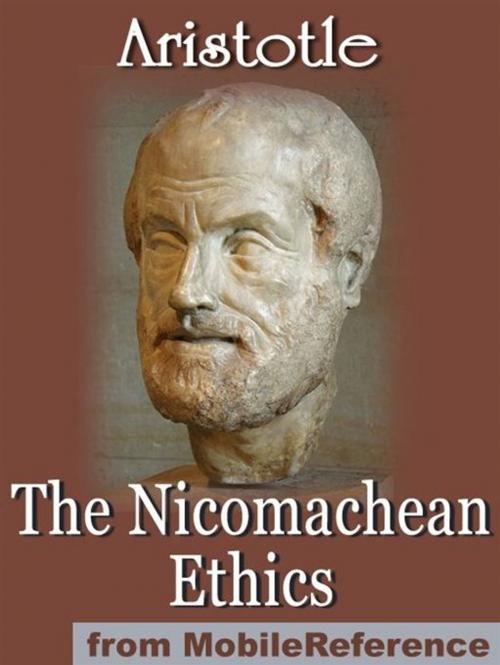The Nicomachean Ethics (Mobi Classics)
Nonfiction, History, Ancient History, Greece, Religion & Spirituality, Philosophy, Ethics & Moral Philosophy| Author: | Aristotle, W. D. Ross (Translator) | ISBN: | 9781605018775 |
| Publisher: | MobileReference | Publication: | January 1, 2010 |
| Imprint: | MobileReference | Language: | English |
| Author: | Aristotle, W. D. Ross (Translator) |
| ISBN: | 9781605018775 |
| Publisher: | MobileReference |
| Publication: | January 1, 2010 |
| Imprint: | MobileReference |
| Language: | English |
Nicomachean Ethics (sometimes spelled "Nichomachean"), or Ta Ethika, is a work by Aristotle on virtue and moral character which plays a prominent role in defining Aristotelian ethics. It consists of ten books based on notes from his lectures at the Lyceum and were either edited by or dedicated to Aristotle's son, Nicomachus.Nicomachean Ethics focuses on the importance of habitually behaving virtuously and developing a virtuous character. Aristotle emphasized the importance of context to ethical behavior, and the ability of the virtuous person to recognize the best course of action. Aristotle argued that eudaimonia is the goal of life, and that a person's pursuit of eudaimonia, rightly conceived, will result in virtuous conduct. Excerpted from Wikipedia, the free encyclopedia.
Nicomachean Ethics (sometimes spelled "Nichomachean"), or Ta Ethika, is a work by Aristotle on virtue and moral character which plays a prominent role in defining Aristotelian ethics. It consists of ten books based on notes from his lectures at the Lyceum and were either edited by or dedicated to Aristotle's son, Nicomachus.Nicomachean Ethics focuses on the importance of habitually behaving virtuously and developing a virtuous character. Aristotle emphasized the importance of context to ethical behavior, and the ability of the virtuous person to recognize the best course of action. Aristotle argued that eudaimonia is the goal of life, and that a person's pursuit of eudaimonia, rightly conceived, will result in virtuous conduct. Excerpted from Wikipedia, the free encyclopedia.















